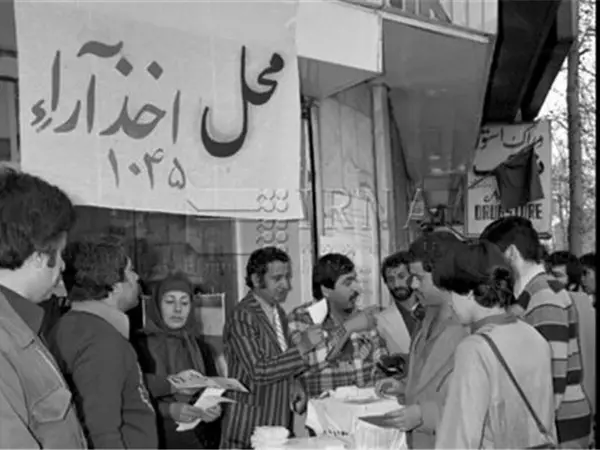More than four decades after the revolution, a reformist lawmaker in Iran says a majority of the people in Iran regret having voted for the Islamic Republic in 1979.
Massoud Pezeshkian, a member of the Iranian Parliament from Tabriz told Didban Iran website that "a large number of people are protesting to the problems in the Iranian society." He added, "These are real problems and that government had better listen to the people's grievances and attend to their demands." Meanwhile he called on the Iranian government to treat the nation compassionately.
He added that the difficulties Iranians are currently facing stem from the government, the Judiciary and the behavior of Iranian clerics. Pezeshkian said, "some 98 percent of Iranians voted for the Islamic Republic in 1979. What have we done in the meantime that so many people have turned away from it?"
In another development of Tuesday, which showed Iran's top officials are still in denial of the country's problems, Iran's President Ebrahim Raisi claimed that everything is in good shape and the country has had eye-catching progress, angering the enemies who instigated the protests in Iran.
Not only the president denied the country is facing a multi-faceted crisis, he also vowed not to have any mercy on protesters and those who stand against the government.
Meanwhile, in an interview with ISNA, which was also carried by several other media outlets in Iran, centrist politician Hossein Marashi said that an association of top clerics who have called for the execution of protesters and amputation of their fingers and toes should apologize to the nation.
Marashi, who is the deputy chief of Iran's Reform Front, hoped that the Association of Seminary Teachers would deny the contents of the statement that called for violent treatment of protesters and prisoners. He said the statement came as a surprise, adding that if this approach continues, it will lead to a form of Talebanism in Iran. Marashi reiterated that statements like this are an insult to Islam.
Referring to previous calls by some officials about holding dialogue with reform-minded individuals, Marashi said that "there is no reason to continue the dialogue under the current circumstances although we generally support the idea of dialogue."
Meanwhile, referring to the statements made by several Friday prayers imams who have accused government's critics of apostasy, Marashi called on the imams to apologize to the nation and pay attention to what the critics say in order to find out a way out of the country's crisis.
In another development, in an article on Etemad Online website, reformist commentator Abbas Abdi warned that a full-fledged economic crisis is going to hit Iranians soon.
Abdi referred to a forecast by the Raisi administration at the beginning of its term in the summer of 2021 about economic growth by 2027. The forecast said that if US sanctions remain in force at the end of the period economic growth will be just 1.7 percent, inflation rate will reach 54 percent and the Iranian rial will fall by 50 percent.
All these have already happened, and it is just 2022.
The forecast, which was generally ignored and was forgotten by even some experts. At the time, the authors of the forecast were accused of portraying a bleak image to force the government to accept to return to the JCPOA, Abdi said.
Abdi noted that the situation is even worse as the government has currently forgotten about its promises to create millions of jobs and build millions of homes. He added that in the best-case scenario, even if Iran returns to the JCPOA, although the situation will look slightly better, overall the future Iranian economy does not look good.
